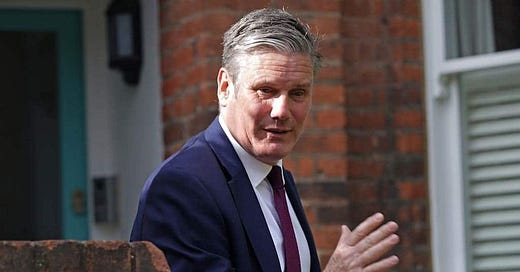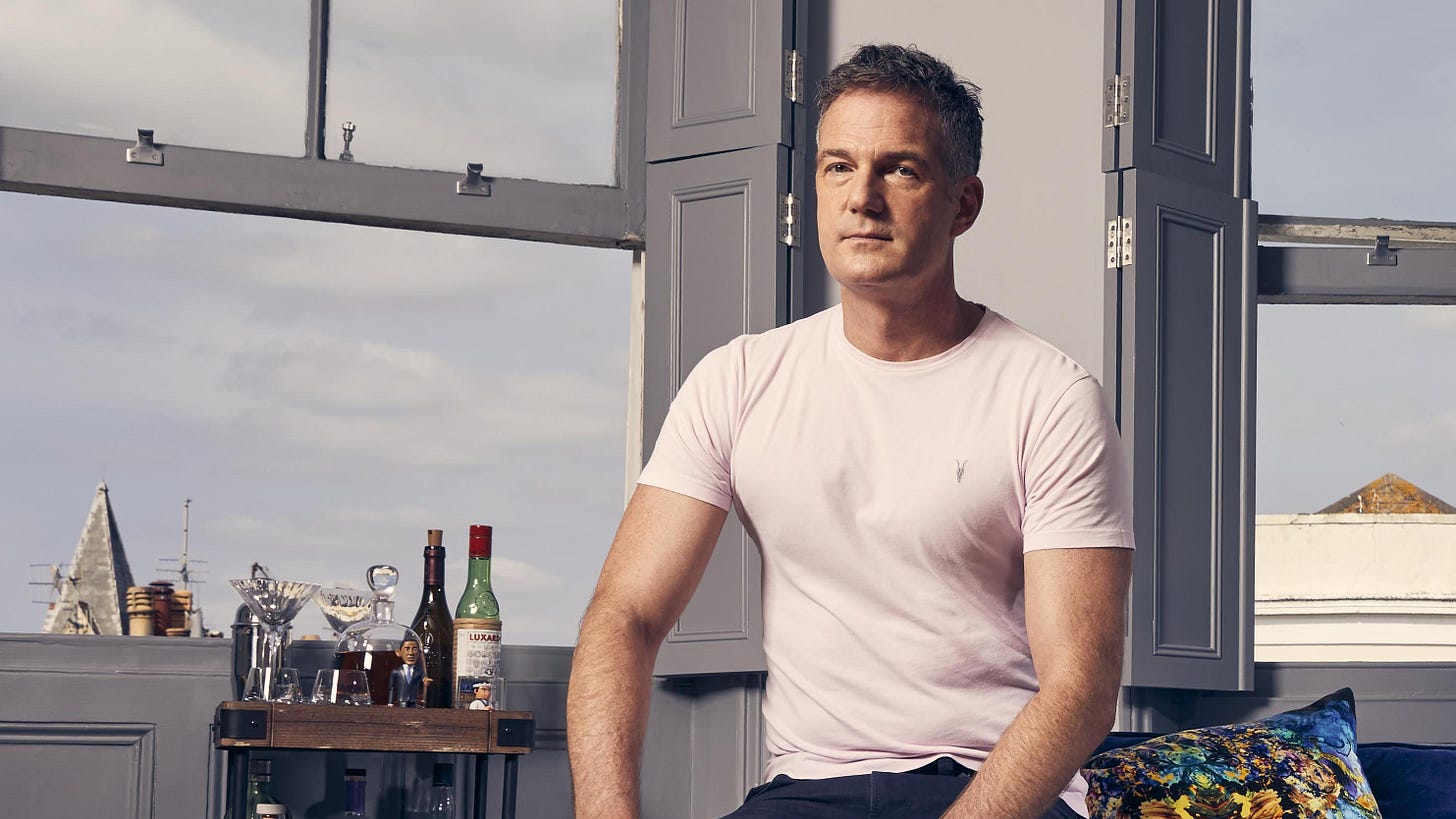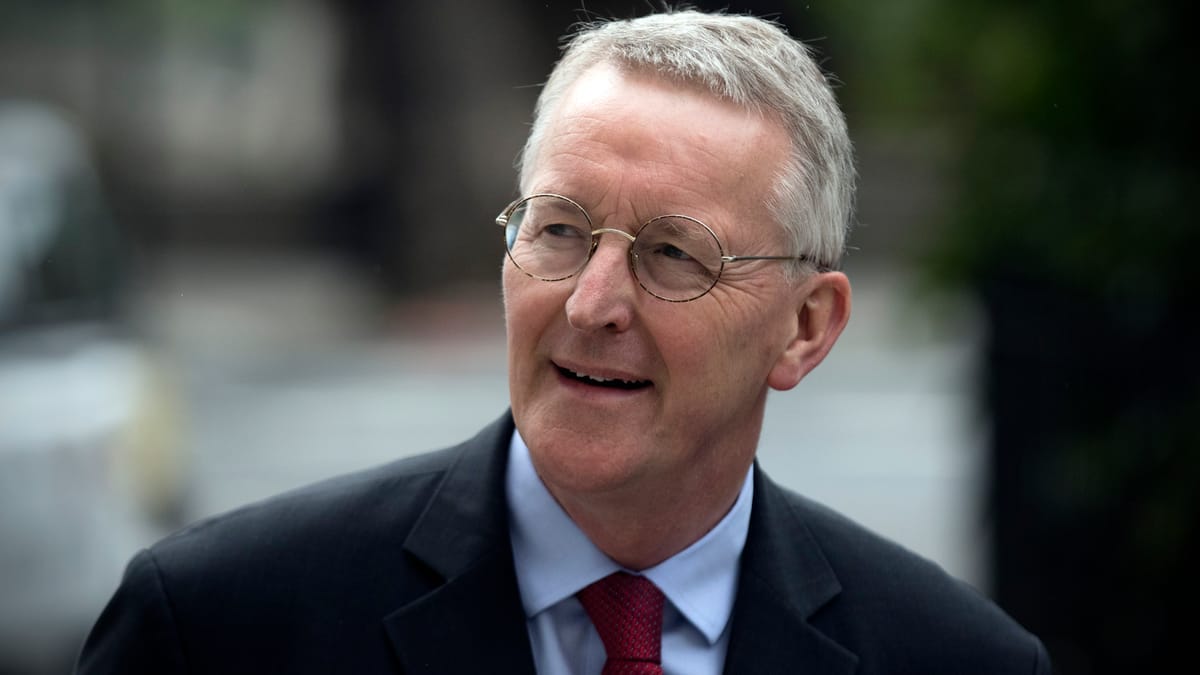Starmer makes changes for the big push
A reshuffled shadow cabinet looks professional and disciplined, though without any dazzling stars; but the Labour leader knows this is not what will win an election
At the beginning of July, it was rumoured that a reshuffle of the shadow cabinet was imminent. Sir Keir Starmer decided in the end to wait until after the summer, but I wrote a set of predictions for City AM of what he was likely to do, and why. Today, the first day Parliament returned after the summer adjournment, Starmer eventually acted and made substantial changes to his team.
As may predicted, there was no change in some of the most high-profile briefs. Rachel Reeves remains shadow chancellor, Yvette Cooper shadow home secretary, David Lammy shadow foreign secretary, Wes Streeting shadow health and social care secretary and Bridget Phillipson shadow education secretary. Most of those make sense: Cooper, Streeting and Phillipson are strong performers both in the Commons and in the media, and have a thorough grasp of their briefs. Streeting in particular has at least faced up to some of the hard truths of the health portfolio and understands that increasing spending is not enough. (Labour is not all the way there yet.) I had wondered if Lammy was vulnerable: he is an undoubtedly clever man, a graduate of Harvard Law School, but he is capable of crude invocations of racial tension (papal elections and civil partnerships have both been connected with racism). I can’t say he has made much of an impact as shadow foreign secretary, although it is not an easy brief in which to shine.
Also widely trailed—I can’t claim much credit for my powers of foresight here—was Angela Rayner’s award of a substantial departmental portfolio, being appointed shadow levelling-up, housing and communities secretary. She replaces the pleasant and able but mild-mannered Lisa Nandy and will go toe-to-toe with Michael Gove. Rayner is elected deputy leader by the Labour Party, so she is entitled to a place in the shadow cabinet by right; Starmer has also made her “shadow deputy prime minister”, which is a relatively meaningless title indicating only that she will be Starmer’s stand-in when he is absent and will mark Oliver Dowden in some of his duties (though Nick Thomas-Symonds will shadow the Cabinet Office).
Starmer needed to find a better way to deploy Rayner. As a politician, she has formidable strengths: she has a straightforwardness which connects well with the electorate, and she cannot easily be regarded as part of the Westminster bubble. Moreover she clearly has experienced hardship, growing up on a poor council estate and acting as a carer for her mother from a young age. Levelling-up gives her a portfolio which will allow her to address the nuts and bolts of public policy in a way which should fit her style; as I said in City AM of her previous position, “her brief runs from the administrative grind of the Cabinet Office to the blue skies of “the future of work”, and even her most loyal supporters would not claim either of these play to her strengths.”
The new shadow cabinet also finally reflects the machinery of government changes introduced by Rishi Sunak in February. Jonathan Reynolds, the shadow business secretary, takes on the new business and trade brief, shadowing Kemi Badenoch. An amiable North-Easterner (neither Geordie nor Mackem; in fact he comes from Houghton-le-Spring, deep in pitmatic country), he is a self-identified moderate, who supports an industrial strategy but was popular in the financial services world when City minister. Apart from a 10-month Corbyn-related gap, he has been on the front bench for a decade, and is the sort of man Starmer could reasonably rely on to run a department.
The Department for Science, Innovation and Technology will be shadowed by the MP for Hove, Peter Kyle. Steeped in third sector policy—he was an adviser on social exclusion in the Blair-era Cabinet Office—he is squarely in the post-Blairite tradition, having backed Liz Kendall for leader in 2015 and Owen Smith in 2016. Kyle has no obvious background in technology or science, but the same accusation can be levelled at the minister he shadows, Michelle Donelan. Still, some on the Labour benches may feel a degree of disappointment at a somewhat generic nomination to a critical policy area.
Taking on the smaller culture, media and sport portfolio, which was stripped of responsibility for digital policy in February, is Thangam Debbonaire, previously shadow leader of the House of Commons. A classical cellist who is married to an opera singer, she has no shortage of hinterland in her new post, but she will need to develop a more partisan instinct if the government seeks to take advantage of “culture war” issues. Debbonaire replaces Lucy Powell, whom I had identified as a potential victim of a reshuffle; Powell is despatched to the thankless task of shadowing Penny Mordaunt as leader of the House.
There are three big winners. Liz Kendall, who attended her first shadow cabinet meeting in 2011 and was Harriet Harman’s special adviser at the Department of Social Security in 1997, becomes shadow work and pensions secretary; incredibly, it is her first full shadow cabinet job. Starmer has perhaps belatedly recalled that it was Kendall who was identified as the leadership candidate the Conservatives feared most back in 2015; it will be a test bed for how enduring the popularity of middle-of-the-road, so-called Blairite policies are (my suspicion is considerable).
Another winner is Ellie Reeves, younger sister of the shadow chancellor. MP for Lewisham West and Penge since 2017, she was an employment law barrister, setting up her own legal consultancy, before serving as shadow solicitor-general and then shadow minister for prisons and probation, and Starmer has now appointed her deputy national campaign co-ordinator for the Labour Party. She knows the party structures well, having served on its National Executive Committee from 2006 to 2016, and is married to the chair of the Parliamentary Labour Party, John Cryer.
Also promoted is Darren Jones, chair of the House of Commons Business and Trade Committee, who becomes shadow chief secretary to the Treasury. I noted in July that he “has sharp political teeth and a firm grasp of commerce and technology”, and suggested he could shadow either business and trade, or science, innovation and technology; as a solicitor with a specialism in technology law, and a former adviser to BT on data, privacy, cyber-security, telecommunications and consumer law, he seems to be slightly miscast as number two to Rachel Reeves. He brings political nous to the shadow cabinet but I think Starmer has wasted an opportunity.
I also tipped Shabana Mahmood for promotion. The Birmingham Ladywood MP had impressed as national campaign co-ordinator, bringing focus and discipline to the Labour Party’s operation, and she is rewarded by being made shadow justice secretary. She is an Oxford graduate who overlapped at Lincoln College with the prime minister, and as a barrister specialised in professional indemnity. If she carries the portfolio into government, there are a lot of difficult issues to face; Joshua Rozenberg suggested that she needed to “develop a strong working relationship with the new lady chief justice and the wider legal profession”, and she will also take over a court system which is underfunded and overwhelmed.
A surprise appointment was the return of veteran former cabinet minister Hilary Benn as shadow Northern Ireland secretary. It is hard to know what has inspired this: Benn will turn 70 later this year, and first stood for Parliament in the Labour “suicide” of 1983. His long ministerial career took in many policy areas but not Northern Ireland, although he did write a paper for the Centre for European Reform last September entitled How to Fix the Northern Ireland Protocol, so he does not come to the subject blind.
The majority of the electorate will not notice Starmer’s reshuffle. It is not a purge nor has he made any dramatic appointments: neither would really be in character for the leader of the opposition. Those who pay attention to politics will see in the main the same faces representing the Labour Party. In Westminster insider terms, it is probably a slightly sharper and more professional team: Pat McFadden and Ellie Reeves can be expected to be methodical and painstaking in co-ordinating the general election campaign. If Labour wins the next election, Starmer has serious, hard-working men and women from whom he can create a cabinet. But he knows, as does the prime minister, that the general election will not be won or lost on the personnel of the cabinet or shadow cabinet.






